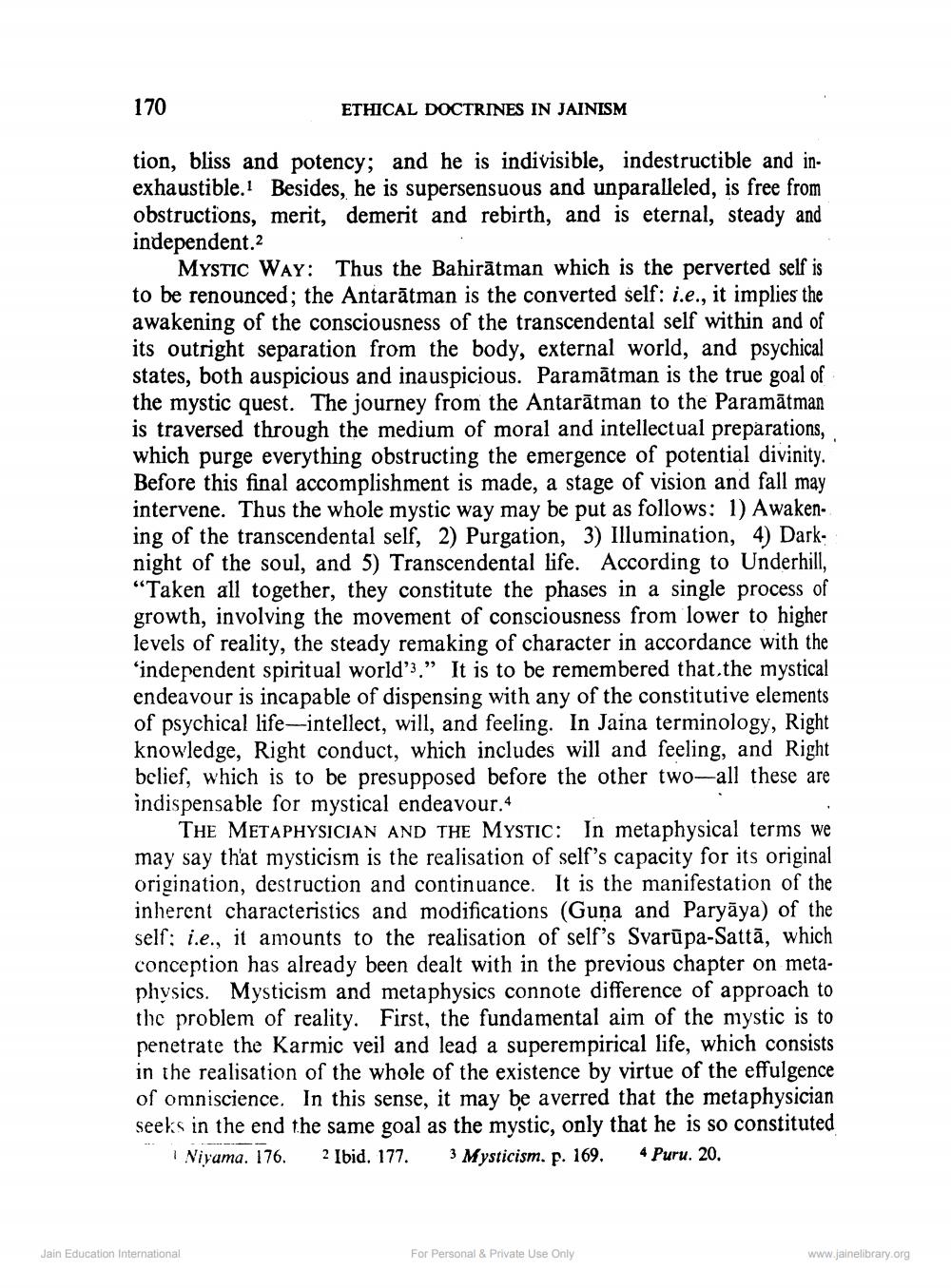________________
170
ETHICAL DOCTRINES IN JAINISM
tion, bliss and potency; and he is indivisible, indestructible and inexhaustible.1 Besides, he is supersensuous and unparalleled, is free from obstructions, merit, demerit and rebirth, and is eternal, steady and independent.2
MYSTIC WAY: Thus the Bahirātman which is the perverted self is to be renounced; the Antarātman is the converted self: i.e., it implies the awakening of the consciousness of the transcendental self within and of its outright separation from the body, external world, and psychical states, both auspicious and inauspicious. Paramātman is the true goal of the mystic quest. The journey from the Antarātman to the Paramātman is traversed through the medium of moral and intellectual preparations, which purge everything obstructing the emergence of potential divinity. Before this final accomplishment is made, a stage of vision and fall may intervene. Thus the whole mystic way may be put as follows: 1) Awakening of the transcendental self, 2) Purgation, 3) Illumination, 4) Dark: night of the soul, and 5) Transcendental life. According to Underhill, “Taken all together, they constitute the phases in a single process of growth, involving the movement of consciousness from lower to higher levels of reality, the steady remaking of character in accordance with the 'independent spiritual world'}.” It is to be remembered that the mystical endeavour is incapable of dispensing with any of the constitutive elements of psychical life-intellect, will, and feeling. In Jaina terminology, Right knowledge, Right conduct, which includes will and feeling, and Right belief, which is to be presupposed before the other two-all these are indispensable for mystical endeavour.4
THE METAPHYSICIAN AND THE MYSTIC: In metaphysical terms we may say that mysticism is the realisation of self's capacity for its original origination, destruction and continuance. It is the manifestation of the inherent characteristics and modifications (
Guna and Paryāya) of the self; i.e., it amounts to the realisation of self's Svarūpa-Sattā, which conception has already been dealt with in the previous chapter on metaphysics. Mysticism and metaphysics connote difference of approach to the problem of reality. First, the fundamental aim of the mystic is to penetrate the Karmic veil and lead a superempirical life, which consists in the realisation of the whole of the existence by virtue of the effulgence of omniscience. In this sense, it may be averred that the metaphysician seeks in the end the same goal as the mystic, only that he is so constituted
Niyama. 176. 2 Ibid. 177. 3 Mysticism. p. 169. 4 Puru. 20.
Jain Education International
For Personal & Private Use Only
www.jainelibrary.org




